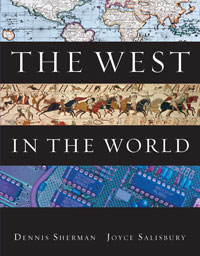1 A) an expansion of sown area. B) tax revolts. C) an unprecedented wave of entrepreneurship. D) better social services. 2 A) divine right. B) a constitution. C) the law of heredity. D) strong armies. 3 A) the Treaty of Augsburg. B) the intendant . C) the treaty of Aix-la-Chapelle. D) the Edict of Nantes. 4 A) continuing Henry IV's reforms. B) expanding the nobility of the robe to create more popular support. C) destroying nobles who opposed the king and creating the intendant system. D) granting further rights to the French Huguenots. 5 A) the War of Devolution. B) the War of the League of Augsburg. C) the War of Spanish Succession. D) the Seven Years' War. 6 A) free peasants. B) serfs. C) day laborers. D) Junkers. 7 A) strengthening his standing army. B) reforming the bureaucracy. C) freeing the serfs. D) avoiding costly wars. 8 A) Ivan the Terrible. B) Tsar Fyodor. C) Michael Romanov. D) Peter I. 9 A) exempted nobles from paying taxes. B) merged peasants and slaves into a class of serfs. C) lowered the term of service for military conscripts. D) created a uniform system of local government. 10 A) merit. B) service in the military. C) education. D) family origin. 11 A) the Black Sea. B) the Danube. C) the Arctic Ocean. D) the Baltic Sea. 12 A) no Polish monarch wanted such responsibility. B) a constitution limited the power of the king. C) the nobles in the Polish Diet were able to safeguard their power. D) putting down peasant uprisings sapped state finances. 13 A) Presbyterian church. B) Anglican church. C) Puritan church. D) Catholic church. 14 A) Rump Parliament. B) Long Parliament. C) Diet. D) Duma. 15 A) Quakers. B) Cavaliers. C) Roundheads. D) Knights. 16 A) Puritans. B) Quakers. C) Parliamentarians. D) Levellers. 17 A) he ruled by divine right. B) Parliament had no right to bring charges against him. C) sovereignty resided in Parliament. D) he should be tried as a private citizen. 18 The Leviathan , Thomas Hobbes argued thatA) humans created a "social contract" with their rulers by which they willingly surrendered their sovereignty. B) kings ruled by divine right. C) citizens had the right to depose a king who broke his side of the contract. D) people were capable of maintaining their sovereignty and ruling themselves. 19 A) Charles II B) James II C) William of Orange D) Louis XIV 20 A) Dutch economic prosperity facilitated political independence. B) the Dutch aristocracy was not historically wealthy and had more in common with merchants. C) Protestant religion cultivated an ideology of moderation and religious toleration there. D) this region had never been ruled by an absolute monarch. 21 A) Peasants tended to marry young. B) Men did heavier work than women. C) Children were the focus of family life. D) Most marriages ended in divorce. 22 A) granting aristocrats invitations to the royal court. B) suppressing the bourgeoisie. C) granting local autonomy to the aristocracy. D) suppressing the lower nobility.





